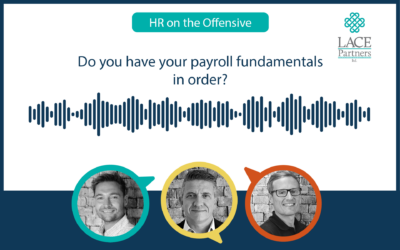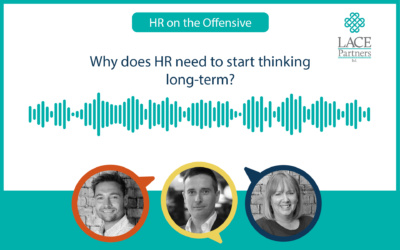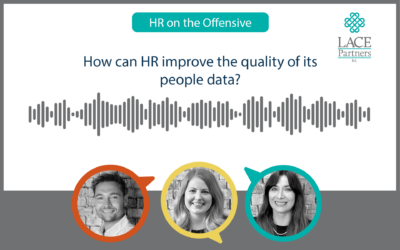In the latest podcast Chris and Emma Leonis-Hughes talk to Appraisd Founder Roly Walter about how to create a an outcomes-driven performance culture. The trio discuss the distinction between an ‘output-based culture’ and an ‘outcome-driven’ culture – How does one better align to the overall goals of the organisation compared to the other? How does this enable employees to explore performance success through their own way of working? Additionally, how does this help to focus how a company works as a team to achieve business goals?
The challenge many organisations have is in getting managers and HR leaders to think ‘outcomes-driven’ without micromanaging or scrutinising individual performances. Employees are twice as likely to be engaged when goals and accountabilities across teams are clear, however 40% of those surveyed aren’t aware of what their company’s goals are. Therefore, it is vital that senior leaders imbed these goals into their employees. Roly talks about three key pillars to an organisation executing on their strategy: performance, alignment of goals across the company, and the progression of people. It is also becoming crucial for organisations to use data to drive these three areas and in this podcast we explore that too.
Every business of every size has complexity attached to it and in the podcast the team talks about how there is no ‘one-size-fits all’ approach when it comes to developing an outcomes-driven performance culture; among smaller organisations, for example, it is more common to find missing data sets and that can hamper the ability to use data to drive the behaviours a business needs to truly become outcomes-driven, whereas larger organisations – who have more traditional ways of doing things – have their own complexities steeped in changing their culture so rapidly. The team also look at the role of a contracted workforce; is it possible that they already have this mindset if they are being brought into the company for a short period of time? How do you instil that same consistency for a such a flexible workforce? The team touch on this as well.
What are the tools you need to focus your performance management on outcomes rather than a ‘box ticking’ exercise? How can businesses get better at leveraging data in performance management? How can you performance manage people on shorter, contract assignments? Listen in to the latest podcast and get the answers.









